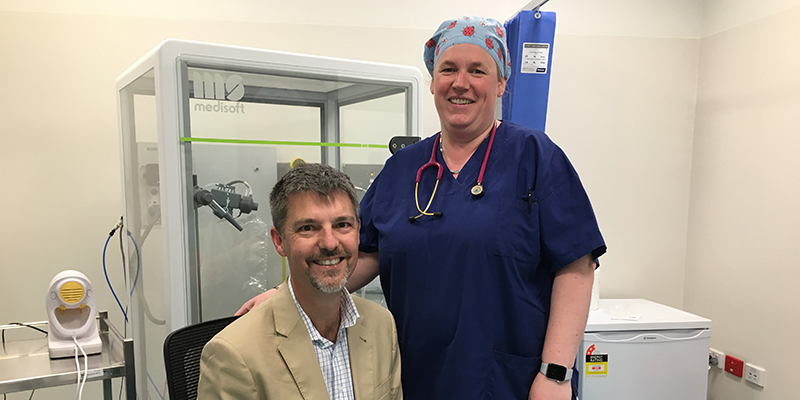Search

News & Events
What’s in a name?In WA, 60,000 kids live with a rare disease, and of those about half do not have a diagnosis. At The Kids, researchers are leading the charge in developing a method to identify genetic variations, so that kids like Charlotte can get answers.

News & Events
WA Child Research Fund grants boost research for premmies, kids with cancer and rare diseasesThe Kids Research Institute Australia researchers have been awarded 12 of 16 grants under the latest round of funding from the WA Child Research Fund

News & Events
Participation key to quality of life for kids with disabilityThe Kids Research Institute Australia researchers have called for a greater focus on creating opportunities for children with disability to participate in the community, after finding a clear link between participation and better quality of life.

News & Events
The Kids Email Alert (January 2018)You may have received an email claiming to be from The Kids Research Institute Australia with an outstanding invoice attached. Do not open this attachment.

News & Events
Sharing the power of data at TEDx PerthDr Hannah Moore was one of WA’s brightest minds chosen to speak at TEDX Perth in November last year, presenting her insights into the power of data in fighting infectious diseases to a sold-out crowd at the Perth Concert Hall.

News & Events
First week of school visits mark official launch of the SToP TrialThe The Kids Skin Health team has a busy six weeks ahead - visiting nine communities throughout the Kimberley region of WA as part of the first school surveillance activities for the SToP Trial.

News & Events
Asthma medication reduces respiratory complications during tonsil surgeryA Perth study has shown that over-the-counter asthma medication before surgery can reduce respiratory complications during and after tonsillectomy surgery.
Symposium Sundowner Date: Monday, 11th November Time: 5-7pm Venue: The Winter Garden & Collegiate Lounge, Level 5 Perth Children’s Hospital Join us

News & Events
Dogs are more than companions, they are great for our mental wellbeingA new study has highlighted the positive impact dog ownership has on our mental health.

News & Events
Infant study shines new light on eczema preventionA study led by The Kids Research Institute Australia has suggested vitamin D supplementation in babies is no match for sunlight when it comes to preventing eczema.
